INTERNATIONAL CONFERENCE: “Hate speech and Antigypsyism in the Media”
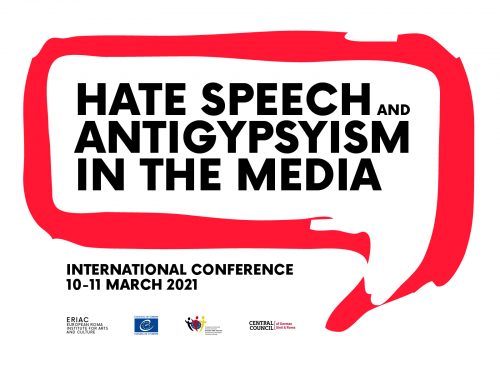
Hate speech remains a global phenomenon which disproportionately affects Sinti and Roma around Europe and the world. Both in the traditional media outlets as well as online, in particular on social media, Sinti and Roma are victims of discriminatory and hateful discourses, misinformation, misrepresentation and fake news, all considered as manifestations of antigypsyism.
The International Conference “Hate speech and Antigypsyism in the Media”, hosted by the European Roma Institute for Arts and Culture (ERIAC) in cooperation with the Council of Europe Roma and Travellers Team and the Central Council of German Sinti and Roma, will aim at examining the phenomenon of hate speech against Sinti and Roma communities and individuals. The event, held in the framework of the German Presidency of the Committee of Ministers of the Council of Europe, will build on the conclusions of the Digital Conference “UNBOXING HATE SPEECH. European Impulses for Respect and Solidarity on the Web” hosted by the German Federal Foreign Office, the Federal Ministry of Justice and Consumer Protection and the Friedrich-Ebert-Stiftung (FES) on 18 February 2021. The international conference will bring together Roma and non-Roma stakeholders with relevant expertise and experience in this field as well as mainstream media stakeholders including media professionals, journalists and representatives of social media platforms, to jointly discuss the experiences of Sinti and Roma communities and individuals. The conference is divided into three thematic blocks and will focus on multiple and complementary strategies to combat hate speech and antigypsyism through reactive and preventive approaches. The conference will also reflect explicitly on the role of social media and the strategies of fighting against hate-speech online.
The conference program will be available on ERIAC Facebook via a public LIVESTREAM.
No registration is required for this. You can take part in the discussion via a chat function.
PROGRAM CONFERENCE_Hate speech and antigypsyism in the media
PROGRAM
10 MARCH 2021
10:00 – 10:20 WELCOMING REMARKS
10: 20 – 13:00 REACTIVE APPROACHES IN FIGHTING HATE SPEECH AND ANTIGYPSYISM IN THE MEDIA
10:20 – 11:40 PANEL 1: Uncovering, monitoring and documenting hate speech and antigypsyism in the media
What are the local, national and international experiences of uncovering hate speech and
antigypsyism in the media? What strategies at the intersection of academic research, grassroots activism, public policy and intergovernmental work exist that ensure systematic monitoring and measuring of the scale of hate speech and antigypsyism in the media?
11:40 – 11:50 BREAK
11:50 – 13:00 PANEL 2: Taking action against hate speech and antigypsyism in the media
What can be done when hate speech in the media happens? What is the role of Roma in denouncing and litigation? What is the level of participation of Roma in media self-regulating bodies?
Is existing legislation enough?
13:00 – 14:00 BREAK
14:00 – 17:00 PREVENTIVE APPROACHES IN FIGHTING HATE SPEECH IN THE MEDIA
14:00 – 15:15 PANEL 3: Strategies of challenging and preventing hate speech in the media. Building a counter
narrative through Roma-led media initiatives
What role do positive stories play in challenging and preventing hate speech in the media? How can we support counter-discourses in the media? What is the role Roma-led media initiatives can play?
15:15 – 15:30 BREAK
15:30 – 16:45 PANEL 4: Hearing the Roma voices in the mainstream media – challenges, opportunities and past experiences
How can we strengthen Romani voices in mainstream media? How can we ensure more self-representation in the media? What are some positive experiences of Roma engaging with mainstream media outlets?
16:45 – 17:00 CLOSING OF THE DAY
11 MARCH 2021
10:00 – 13:00 ANTIGYPSYISM AND SOCIAL MEDIA/HATE-SPEECH ONLINE
10:00 – 10:20 INTRODUCTIONS
10:20 – 11:30 PANEL 5: Hate speech and antigypsyism online – Sinti and Roma experiences and counter-strategies
What are the experiences of Sinti and Roma in online spaces? What strategies exist to act against hate speech on social media? How can we build effective alliances across different stakeholders?
11:30 – 12:45 PANEL 6: Building safe and respectful social media environment
Hate speech, in particular on social media, disproportionally affects Sinti and Roma as well as other minorities and vulnerable groups. What is the role intergovernmental organizations, internet companies as well as governments in ensuring the internet is a safe space for all? How can we guarantee Sinti and Roma participation in future initiatives aiming at regulating social media environments?
12:45 – 13:00. CLOSING OF THE CONFERENCE
SPEAKERS AND MODERATORS
10 MARCH 2021
Welcoming remarks
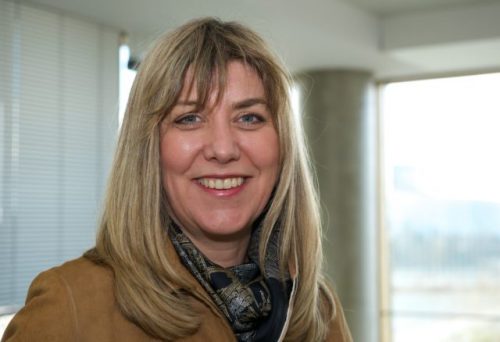
Snežana Samardžić-Marković has been the Director General of Democracy at the Council of Europe since 2012, in charge of the Organisation’s actions promoting democratic innovation, governance, participation, and diversity. Her responsibilities include the policy areas of education and youth, local democracy, cultural policies, election assistance, the protection of human dignity, gender equality, children’s rights, and the rights of minorities, work against discrimination, democratic citizenship, and democratic responses to crisis situations. Previously, Snežana has held numerous positions in the Serbian Government including as Deputy Director in the Ministry of Foreign Affairs for Neighbouring Countries, Assistant Minister of Defence (2005-2007) and Co-President of the Serbia-NATO Defence Reform Group, member of the Foundation Board of WADA, Minister of Youth and Sports (2007-2012), and President of the Fund for Young Talents.

Romani Rose (born 1946 at Heidelberg, Germany) is a Romani activist who lost 13 relatives in the Holocaust of the Nazi purges against the Romani people and Jews and is the head of the Central Council of German Sinti and Roma. During the founding of the Central Council in 1982 he was voted to the position of Chairman by the delegates of the member organisations – then 9, now 16 state and regional associations – and since then has been confirmed in his post every four years at the member meetings. From 1991, Rose took over the management of the Documentation and Culture Centre of German Sinti and Roma in Heidelberg. For years he has been known by the federal and state governments for his resoluteness and for his persistent and unyielding work. Together with the Chairpersons of the National Minorities in Germany, Rose leads the Minority Council, which was founded on September 9, 2004. It is the union of the umbrella organisations of the four national minorities which belong to the German nation and have always been resident and autochthonous here. For three decades –since June 1979 to be exact – he has led the work for the civil rights of German Sinti and Roma before the eyes of the German as well as the international public; he has also fought for their protection from racism and discrimination, for compensation for the survivors of the Holocaust – at the same time announcing the magnitude and the historical importance of the genocide of 500,000 Sinti and Roma in National Socialist occupied Europe. In May 1995, in cooperation with the member organisations of the Central Council, Rose achieved recognition for German Sinti and Roma as a national minority in Germany with their own minority language, connected with their goal of equal participation in social and political life.
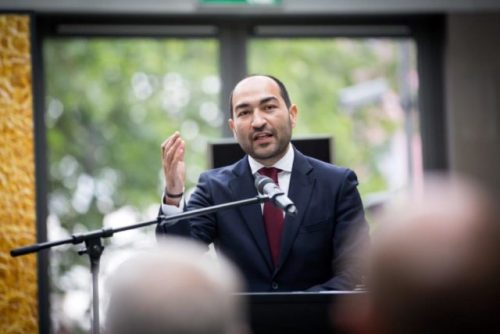
Zeljko Jovanovic is the director of the Open Society Roma Initiatives Office, which supports the voices and leadership of Roma in making their power felt in the policy-making arena. Jovanovic comes from a family of Roma ethnic background which, through a belief in hard work, self-determination, and education, moved from multi-generational extreme poverty to the middle class in Serbia. Before joining the Open Society Foundations in 2006, he worked for the Organization for Security and Cooperation in Europe on elections and public policy and for Catholic Relief Services on civil society development. He also has established and led a local Roma organisation and community radio programming, as well as volunteered for Roma political parties and protested for democracy during the Milosevic regime in Serbia. He has also trained and mentored non-profit managers, advocates, and leaders internationally. Jovanovic has degrees in law from the University of Belgrade and in public policy from the University of Oxford. He also completed the Executive Education Program on Strategic Management at Harvard University. He is a member of the Aspen Institute network.
PANEL 1: Uncovering, monitoring and documenting hate speech and antigypsyism in the media
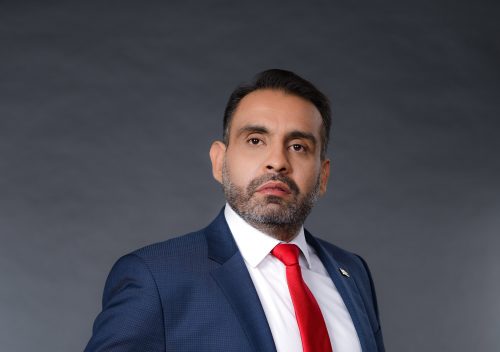
Alen Tahiri is the Director of the Office Human Rights and the Rights of National Minorities of the Government of the Republic of Croatia. Mr Tahiri is a PhD candidate at the Faculty of Humanities and Social Sciences, University of Zagreb, researching Modern and Contemporary Croatian History in European and World Context. Mr Tahiri was given the Award for Outstanding Contribution to Working with the Roma Community, awarded on the occasion of the World Day of Romani Language by the Union of Roma in the Republic of Croatia “Kali Sara”. He received the Acknowledgment on the occasion of the 10th anniversary of the work of the Union of Roma in the Republic of Croatia “Kali Sara” and the World Day of Romani Language and the Acknowledgment for exceptional cooperation in promoting the rights of national minorities in the Republic of Croatia presented by MP Veljko Kajtazi. Mr Tahiri is a member of ODIHR National Contact Point for Hate Crimes, Head of the National Working Group on Hate Crime MonitoringMember of the Steering Committee on Anti-Discrimination, Diversity and Inclusion (CDADI), Member of the Committee of Experts on Roma and Traveller Issues (ADI-ROM) and Member of the Working Group on Intercultural Integration (GT-ADI-INT).
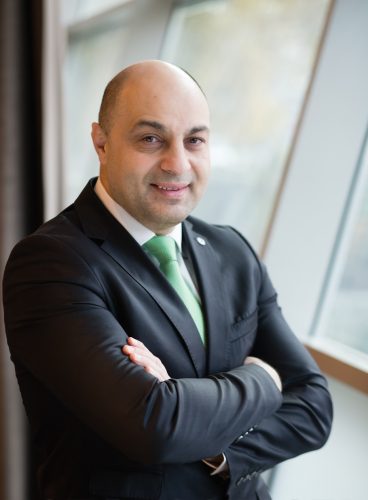
Dan Pavel Doghi is the Chief of the OSCE ODIHR’s Contact Point for Roma and Sinti Issues (CPRSI), Senior Adviser on Roma and Sinti Issues since March 2018. Previously, Mr. Doghi served as the Higher Education Program Manager of Roma Education Fund (REF), in Budapest (2012-2017), and as Officer within the ODIHR’s CPRSI throughout 2004-2011. While at REF, Mr. Doghi was also the National Director of REF Romania Office, during 2013-2015. During 2009-2016, he served as a member of the Board of Directors of the European Roma Rights Centre (ERRC). Mr Doghi was an Advocacy Fellow in the training and education programme of the Public Interest Law Initiative, a Budapest-based programme of Columbia University, where he worked on the issue of segregation in education of Roma children. He was involved in human rights and civil society work since 1996, through Roma NGOs in Bucharest and Cluj-Napoca, Romania.
Mr Doghi studied social sciences at Babes-Bolyai University of Cluj, Romania, and completed a postgraduate course in International Diplomacy at the University of Malta.
Media monitoring by CPRSI – Dan Doghi presentation
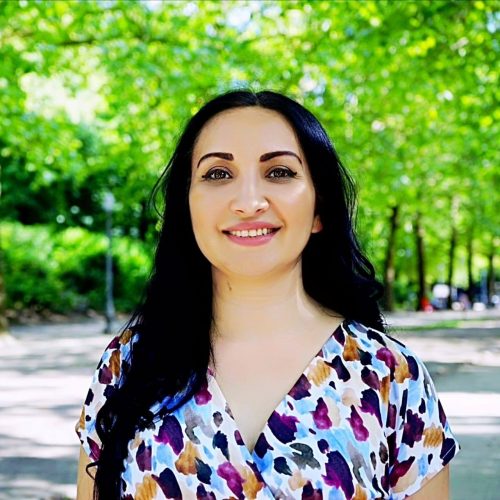
Isabela Mihalache is a Senior Advocacy Officer at the European Roma Grassroots Organisations Network (ERGO) since January 2020, where she is focusing on antigypsyism and intersectionality, engaging with EU institutions on EU-level advocacy regarding the EU Roma Framework, mainstreaming Roma issues in wider EU policies and developing capacity building tools for NGOs on monitoring and advocacy. She also coordinates input on behalf of the Alliance against Antigypsyism and the EU Roma Policy Coalition on Roma policy. She was involved with reviewing the Roma Civil monitoring reports phase 3 of the project on participation and antigypsyism. She worked previously with the European Network Against Racism, the European Roma Rights Center, the Open Society Foundations, and the Council of Europe – where she developed among other the anti-discrimination pillar on upscaling the organisation’s training tools on non-discrimination and Roma for lawyers, judges, prosecutors and the law enforcement and designed and managed a joint EU-CoE project with DG JUST, on the Access of Roma women to Justice (JUSTROM). Throughout her professional career, Isabela developed a vast experience in human rights advocacy, policy and standards development particularly on Roma rights, non-discrimination and gender equality. She focused most of her work on topics such as early and child marriages, women and children’s rights, including trafficking and sexual abuse, segregation in education, housing rights and evictions, access to justice and antigypsyism, working with a wide range of key stakeholders at national, EU and international level.
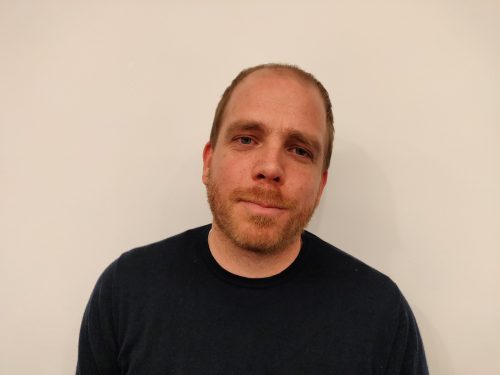
Markus End is a PostDoc researcher at the Center for Research on Antisemitism, a member of the Independant Commission on Antigypsyism. His research on antigypsyism focuses on theoretical and terminological questions, methods and didactics of educational work as well as media and police discourses.
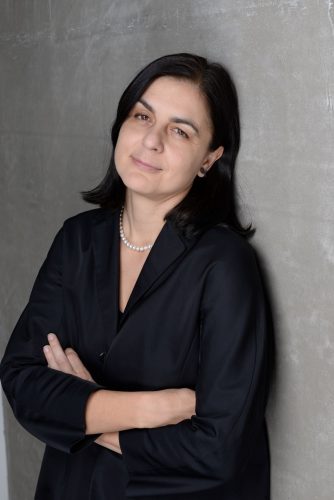
Radmila Mladenova is a literary and film scholar based in Heidelberg, Germany. Her research interests lie at the intersection of racism and art. Currently, she coordinates the Explorer Project “Artistic Alternatives to the Antigypsy Gaze” at the Research Centre on Antigypsyism (RCA) at Heidelberg University’s History Department. In January 2021, she defended her PhD thesis The ‘White’ Mask and the ‘Gypsy’ Mask in Film at the Institute of Slavic Studies in Heidelberg. In 2018, she led the Pilot Project “The Stigma ‘Gypsy’. Visual Dimensions of Antigypsyism” at RCA and co-organized two international conferences; the first, on the topic of “Antigypsyism and Film”, and the second, on the topic of “Visual Dimensions of Antigypsyism”. The edited volumes with the conference proceedings are included in Heidelberg University Publishing’s program for 2020/21. In 2014, Radmila Mladenova earned her MA at Mannheim University and was awarded for her thesis On ‘Gypsy’ Representations in Literature and Film. Before moving to Germany, she had worked for several non-governmental organizations dedicated to the promotion of grass-roots democracy, human rights and environmental protection.

Anna Mirga-Kruszelnicka is an anthropologist and Roma activist, born in 1985 in Cracow/Poland. She earned her Ph.D. in Social and Cultural Anthropology at the Universitat Autònoma de Barcelona (UAB) in 2016. She holds an MA in European Integration from UAB and an MA in Comparative Studies of Civilizations from the Jagiellonian University in Cracow (UJ). She is the author of policy evaluations, reports, and articles, and is the co-editor of the book Education for Remembrance of the Roma Genocide: Scholarship, Commemoration and the Role of Youth (Libron, 2015).
She has been an employee, member, founder, and collaborator of numerous Roma organizations in Poland and Spain. From 2008 to 2012 she was the European project coordinator at the Federation of Roma Associations in Catalonia (FAGIC). From 2013 to 2015 she was an Open Society Foundations Roma Initiatives Fellow, conducting a comparative study of the Roma associative movements in various countries of Latin America and Europe. From 2015 to 2017 she was the coordinator and curator of the Academic Section (aka. Roma Civil Rights Movement Section) in the RomArchive – Digital Archive of the Roma. Between 2017-2018 she was a Post-Doctoral Research Fellow of the Romani Studies Program at the Central European University (CEU) in Budapest.
PANEL 2: Taking action against hate speech and antigypsyism in the media
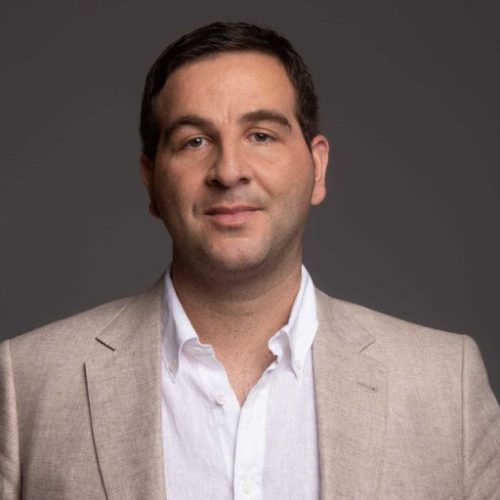
Ismael Cortés holds a PhD in International Studies of Peace, Conflicts and Development with an international award by the UNESCO Chair of Philosophy for Peace (Universitat Jaume I). He has been a researcher at the University of Nottingham, the International University of Andalusia and the Carlos III University. He has been an expert consultant in the OSCE – ODHIR project “Turning words into action. Combating anti-Semitism and other forms of intolerance (2015-2018)”. He has worked as a policy analyst for think tanks such as the Center for European Policy Studies and the Open Society European Policy Institute. He was a postdoc fellow of the Roma Studies Program at Central European University. He coordinated the book Dimensions of Antigypsyism in Europe. His last book was recently published in Spain: Dreams and shadows on the Roma. The presence of an historical racism. Currently, he serves as an MP in the Spanish Parliament.
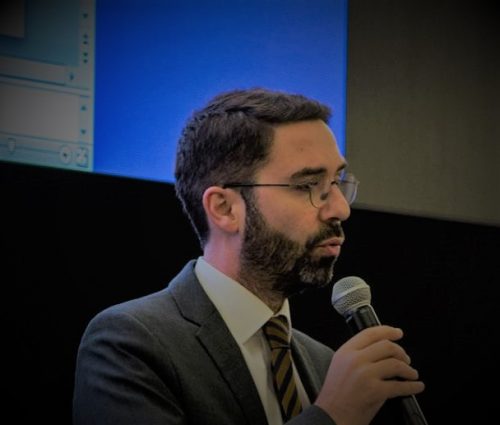
Roberto Bortone (Rome 1979) holds a PhD in Education and Social Work. At the Ministry of the Interior his work focused on the protection of national minorities. He studies the impact of discrimination on the integration process of minority groups, with specific reference to identity definition dynamics. At present he works at UNAR – National Anti-Racial Discrimination Office, within the Presidency of the Council of Ministers, were he coordinates the National Strategy for the Inclusion of Roma, Sinti and Caminanti Communities and he is in charge of the National Observatory on Hate Speech. He is currently managing several Eu projects on the topic of online hate speech. He has been temporary lecturer in Socioloongy of Ethnic Relations at Roma Tre University for the academic year 2016/2017.
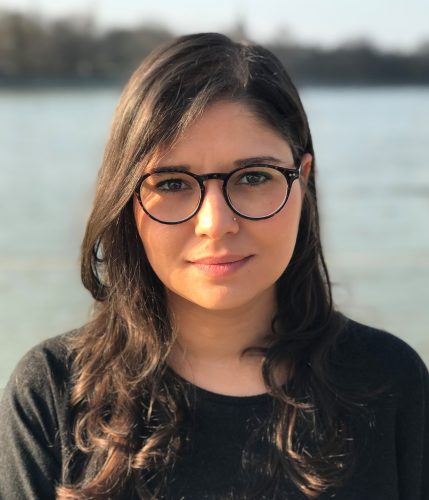
Vivien Brassói studied in the Human Rights LLM program of the Central European University in Budapest, Hungary. Prior to that, she graduated from the Faculty of Law at ELTE in Budapest. She has acquired a strong foundation in the field of international human rights, which she has strengthened through participation in programs such as the Minorities Fellowship Programme of the United Nations Office of the High Commissioner for Human Rights in 2019 and the Legislative Fellows Program on Sustaining Civic Participation in Minority Communities in the USA. Vivien currently works for the European Roma Rights Centre as a legal manager where she engages in strategic litigation to ensure that the ERRC is supporting Romani people to make cutting edge legal arguments in and out of court to achieve radical change across Europe in multiple thematic areas.
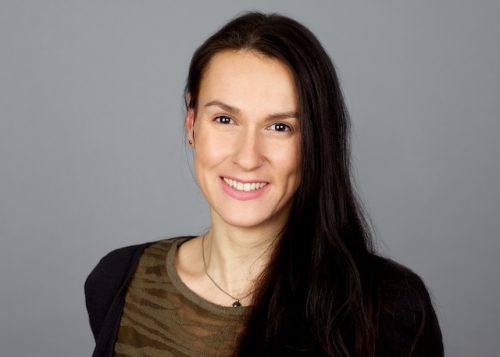
Anja Reuss is a political advisor at the Central Council of German Sinti and Roma. She studied Modern European History with a focus on National Socialism, Genocide Studies, Migration and Minority History at the Humboldt University in Berlin. Her current work and research interests are: the dimensions of Antigypsyism, media, minority rights, policing, hate crime and data collection. She is a member of the Society for Antigypsyism Research and in 2015 published a study on Antigypsyism in Germany after 1945. She is also co-editor of the volume Antigypsyism and film, published 2020.
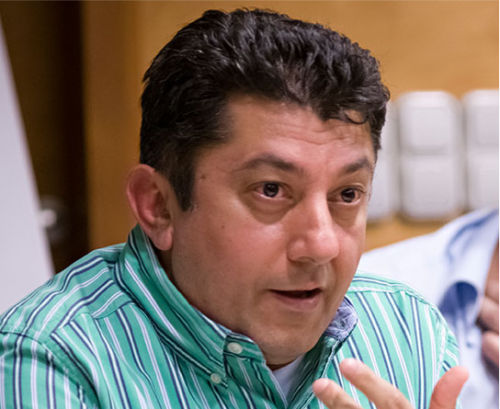
Iulius Rostas was the Chair of Romani Studies/Assistant Professor at Central European University in Budapest. He was an Affiliated Fellow with the Institute for Advanced Studies at CEU, Senior Fellow with the Open Society Foundations Roma Initiatives Office, and Visiting Lecturer at Corvinus University of Budapest. He has worked for the Open Society Foundations, the European Roma Rights Center, and the Government of Romania, and has consulted for the Organisation for Security and Cooperation in Europe, the World Bank, the European Commission, and the Roma Education Fund. Dr. Rostas is the editor of “Ten Years After: A History of Roma School Desegregation in Central and Eastern Europe” (CEU Press, 2012) and in 2011 he published “Social Inclusion or Exclusion: the Rights of Persons Living with HIV in Moldova” (Cartier Publishing, 2011). He published articles and book chapters on Roma participation, Romani identity, Roma school desegregation, the Romani movement, and civil society.
PANEL 3: Strategies of challenging and preventing hate speech in the media. Building a counter-narrative through Roma-led media initiatives
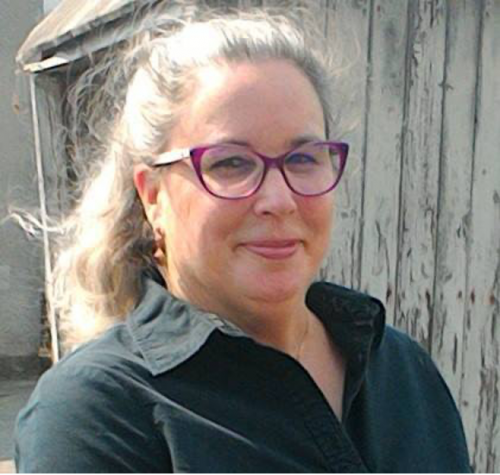
Gwendolyn Albert (born 1967) is a human rights activist and ally of the Romani minority who has been involved in advocacy on the issues of dignified remembrance of Romani Holocaust sites (30 years), guaranteed access to standard primary school for Romani children in Europe (20 years), and redress for women who have been forcibly sterilized (15 years). In August 2020 she was given the Award for Humanity by the Committee for the Redress of the Roma Holocaust in the Czech Republic in recognition of her work on the issue of redress for forced sterilization. In September 2020 she became a volunteer civil society member of the Czech Government Council on Roma Minority Affairs, where she contributed to drafting the Roma Strategy for 2021-2030. She has been involved as an expert in EU-funded projects on monitoring hate speech online, testing discrimination, and monitoring implementation of policy on Roma in the Member States with the Roma Civil Monitor project (2017-2020). Based in the Czech Republic, she has also worked as an expert for the Council of Europe and the OSCE. She translates the news daily into English for the Romea.cz news server in Prague (since 2010) and was a contributor to an extensive report by the Council of Europe’s Human Rights Commissioner Thomas Hammarberg, Human Rights of Roma and Travellers in Europe (2012). She is also the author of several contributions to peer-reviewed journals and other publications on human rights violations against Romani community members. Ms Albert holds a Bachelor’s degree in linguistics from the University of California at Berkeley, where she graduated in 1989; she spent the 1989/90 academic year on a Fulbright grant at Charles University in Prague, where she participated in the Velvet Revolution as a translator. She is a native speaker of English, fluent in Czech, and has also studied French and Russian.
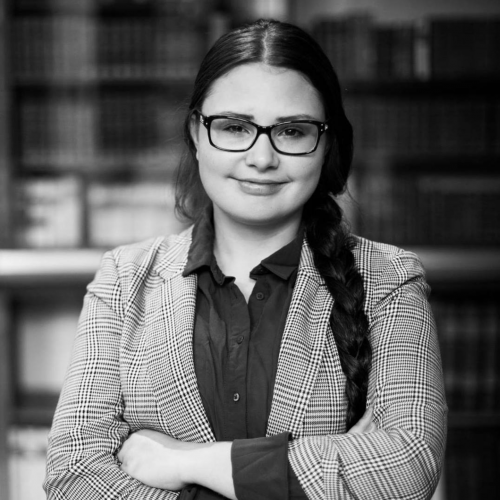
Lisa Smith has an MA in Education and is chair of ACERT (The Advisory Council for the Education of Romani & other Travellers) Lisa is also currently Youth Editor at Travellers’ Times a national magazine for Roma and Travellers supporting young people through journalism, media and training programmes and is the founder of the ‘Its Kushti to Rokker’ initiative an education and filmmaking project exploring the impact of anti-gypsyism on youth mental health and well-being.

Dalibor Tanić was born on September 13th, 1981, in Badnjevac, Serbia. In Sarajevo is living from 2009. He is an activist and journalist for more than ten years. He is awarded by European Union for investigative journalism for Bosnia and Herzegovina in 2014. Throughout his career, especially from 2010 until today, he follows and reports about Roma issue in Bosnia and Herzegovina. It is related, especially taking apart in Roma website project ‘Tocak’, for which he reported and wrote articles about Roma people in Bosnia and Herzegovina. At the same time, it has been created new website diskriminacija.ba (the site is still active) and he has been a contributor from its beginning. More than ten years, journalism, activist experience, he decided to start up with website ‘Udar’ website like that is the only one in Bosnia and Herzegovina. Journalistic oriented, activistic as well, for Udar are writing youth of Roma people from all around of Bosnia and Herzegovina, after they attend an intensive educational course. Surrounded with young Roma people, and website idea, he is building the platform for the new generation. In 2020, he founded organization the Association of Young Roma AKSIOM. Beside media that dominate Roma’s and human rights, also he was dealing with investigative journalism in many redactions, online magazine ‘Žurnal’ is listed, where he is awarded for investigative journalism. He is married, father of two children.
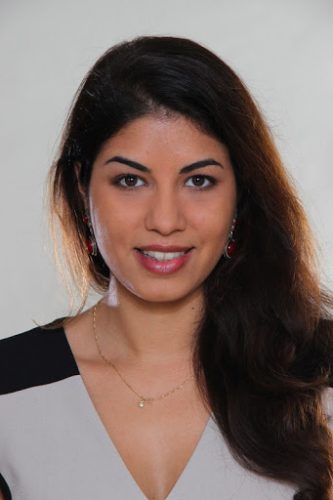
Katalin Barsony is a documentary filmmaker and executive director of the Budapest-based Roma media organization Romedia Foundation. Ms Barsony is completing her doctoral dissertation in communications and behavioral science at Corvinus University in Budapest. She used her deep understanding of minority issues and expertise in sociology to create the first-ever documentary series on Roma communities around the world to be broadcast on a mainstream television channel (Duna Television Hungary). The Mundi Romani – the World through Roma Eyes series was broadcast monthly between 2007 and 2011 (forty-two episodes shot in twenty-eight countries) and won recognition worldwide for its innovative quality, cinematography and the untold stories the films uncovered. In 2010, the Mundi Romani series was awarded the UNESCO Prize for the Rapprochement of Cultures. Awards and nominations at the Monte Carlo Television Festival, the International Festival of Audiovisual Programmes (FIPA), the CIVIS Prize, etc., led to the creation of independent media campaigns, such as the “I’m a Roma Woman” campaign, and film projects, such as Uprooted (2011), nominated at the 8th Aljazeera International Documentary Film Festival, and the upcoming documentary drama, The 3Brothers. In 2012, Romedia organized the Budapest leg of Requiem for Auschwitz, a series of events including a concert, a film festival and an art exhibition that toured Europe.
PANEL 4: Hearing the Roma voices in the mainstream media – challenges, opportunities and past experiences

Lela Savic is the founding editor of La Converse and Svato. She has worked at Journal Métro in Montreal, covering politics and human rights, CBC’s investigative show Enquête, La Presse and regularly presents lectures on biases and positionality in the media in Canada, the U.S. and Europe. She’s the Quebec chapter lead of Canadian Journalists of Colour and a board member of Press Forward, an association of independent media in Canada. The misrepresentation of her people in the media, the Roma, pushed her to the world of journalism.

Jake Bowers is a British Romani journalist, producer, media teacher and filmmaker with over 20 years experience in the media. He trained as a journalist with the BBC before starting his own successful production company the Gypsy Media Company Ltd in 2007. In that time he has worked for clients as diverse as the BBC, ITV, Swedish Radio, Coca-Cola, Virgin Records, Sony Music and Warner Brothers and some of the biggest advertising companies in the world, producing everything from advertising to music videos and documentaries. His work always seeks to amplify the voices of the marginalised and silenced, from indigenous communities to his own Romani community on mainstream mass media platforms. www.jakebowers.co.uk
Jake Bowers Hate Speech and AntiGypsyism in the Media
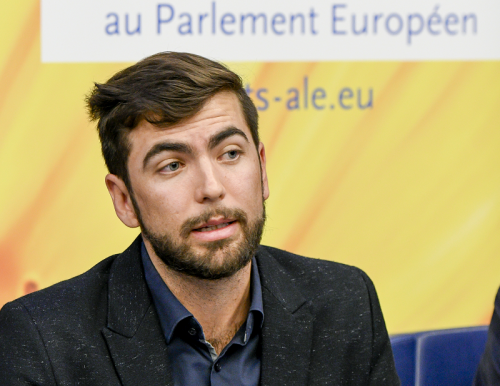
Scott Griffen is deputy director at the International Press Institute (IPI), a global network of editors, publishers and journalists defending press freedom since 1950. He is the author of numerous IPI reports on diverse topics related to press freedom and independent journalism and has led or participated in dozens of IPI press freedom missions around the world. Griffen comments regularly on issues related to press freedom and media pluralism in international media. He holds degrees from Yale University and King’s College London.
Closing of the day

Michaela Küchler is currently the German Foreign Office Special Representative for Relations with Jewish Organisations, Holocaust Remembrance, Antisemitism, and international affairs relating to Sinti and Roma. She works on issues such as building cooperation with international organizations like OSCE/ODIHR, UNESCO and the EU, cooperating with countries in the field of combatting antisemitism, maintaining dialogue with Jewish organizations throughout Germany, the USA and central and eastern Europe, as well as funding projects on remembrance of the Holocaust and the genocide of the Sinti and Roma. As current Chair of the International Holocaust Remembrance Alliance, her priority is combatting denial, distortion and relativization of the Holocaust.
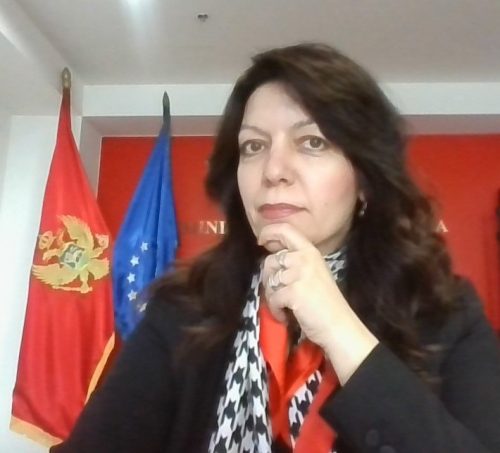
Tatjana Anđelić is a representative of Montenegro in Committee of Experts on Roma and Traveller Issues -ADI ROM, and elected Chair of this Committee. She is married and mother of eight years daughter Helena. She graduated at the Faculty of Law of the University of Montenegro ~At the 4th year of study she choose section- International Law and International Relations as the main course of studing. She finished Diplomatic Academy »Gavro Vuković « organized by the Faculty of Law of the University of Montenegro and the Ministry of Foreign Affairs of the Government of Montenegro. She finished Program »International Law of UN « in the The Hague – Netherlands on the topics Public International Law, Refugee Law, International Relations, International Courts, Geopolitics, (organized by UNITAR – United Nations Institute for Training and Research from Geneva). She has 20 years of proffesional experience.Curently she is working as Head for European Integration, Programming and Implementing of EU funds in the Ministry of Justice, Human and Minority Rights of the Govrenment of Montenegro, and she is coordinator for Negotiaton Chapter 19 »Employment and Social Policies in that Ministry. She was on 2018., 2019. and 2020 nominated as President of Commission for the delivering funds to the NGO in the area of Social inclusion of Roma and Egyptians in Montenegro.
11 MARCH 2021
Antigypsyism and social media/ hate-speech online
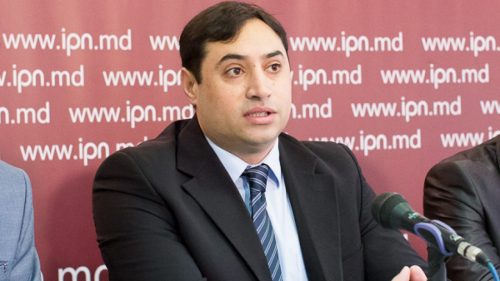
Nicolae Radita currently serves as the Adviser to the Prime-Minister of Moldova on Human Rights, Interethnic Relations and Civil Society that aims to strengthen human rights protection system and civil society participation within the National Council on Human Rights by applying in practice the Governmental Activity Plan and strengthening the democracy and rule of law in the country! As a former Director of the State Agency for Interethnic Relations, he followed the agenda on voicing the ethnic minorities issues in the public life via the national strategies and collaboration with the human rights institutions in the country and outside. Among those where also tracking on implementation of the Action Plan on Roma as well supervising the work of Roma community mediators. He has extensive expertise on Roma issues being part of Council of Europe Committee from 2009 as board and vice-chair of CAHROM and lately as ADI-ROM rapporteur on anti-gypsism, hate speech and violence!
Mr. Radita is a human rights activist that founded and led Roma National Center, a not-for-profit organization, that has realized different projects that addressed different human rights issues of Roma such as health, employment, women and youth empowerment, non-formal education. He is also the author of Anti-discrimination bill, the Roma community mediator institution. Also, he holds a Master’s Degree in Law (LL.M) from the University of European Studies and is following the doctoral studies in Human Rights for minorities at the Free University. He is also a scholar of the School of International and Public Affairs of Columbia University from New York, (USA).

Sina Laubenstein is a political scientist and coordinates the implementation of the Council of Europe initiative No Hate Speech Movement in Germany. She works for the Berlin-based organisation Neue deutsche Medienmacher:innen since 2016 and further consults NGOs, companies as well as political stakeholders in Germany and across Europe on strategies on how to responds to hate speech and extremism online. She is further working with the Council of Europe and partners from Belgium, Italy and Romania in the international project WE CAN for human rights speech.
PANEL 5: Hate speech and antigypsyism online – Sinti and
Roma experiences and counter-strategies
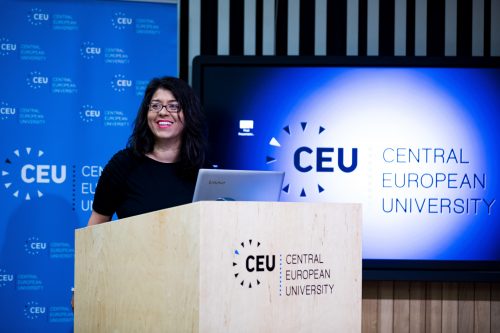
Maria Bogdan is a media theorist and a social scientist. Her main research interest is related to media representation and racism. She received her PhD from the Film, Media and Culture Theory Doctoral Program at the Eötvös Loránd University in Budapest. She wrote her PhD Thesis about the media representation of the Roma in Hungary, titled: ‘The Visible Stranger’. She worked as a researcher at the Hungarian Academy of Sciences, at Central European University and recently at the Antigypsyism Research Center of Heidelberg University where she was the first Romani Rose Postdoctoral Researcher Fellow in 2019-2020. She was an assistant lecturer at the University of Pécs, and held seminars at Eötvös Loránd University and at Heidelberg University. She is a Fulbright Alumna and has done part of her PhD research at Columbia University in the City of New York. She is one of the founding editors of Critical Romani Studies journal. Besides her scholarly interest, she studied journalism and film directing too. She is the Chair of the ERIAC Barvalipe Academy.
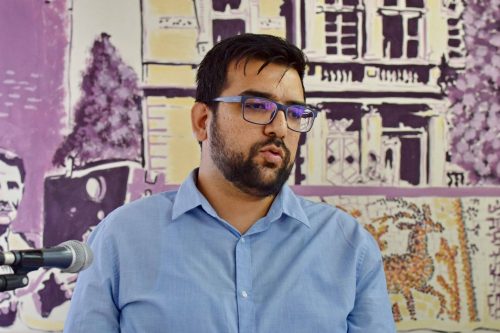
Mustafa Jakupov is the Policy and Project coordinator at ERGO network. He comes from the field of youth work and has experience in addressing issues of participation, antigypsyism, working on empowerment and mobilization of young people, especially young Roma. He is currently managing the “Peer education to counter antigypsyist hate speech online” project supported by DG JUSTICE and GOOGLE.ORG, Mustafa is also part of the trainers pool of the youth department of the Council of Europe, and was and is part of many international civil society organizations and actors as for example, being part of the MTV Staying Alive Board for 2 years, working with ternYpe-International Roma youth network etc.

Lois Brookes-Jones is a Romany activist based in the West Midlands. She is a co-founder of the Dikhlo Collective which provides free cultural parcels to Romani people globally, and co-founder of Traveller Pride, an LGBT+ GRT (Gypsy Roma Traveller) campaign group which brought the first GRT representation to London Pride in 2019.

Taisiya Schumacher was born into a Roma family in Russia. She narrates: “My mother and her whole family are Roma. My father is a so called Russian- German who lived together with my Roma family and who learned our language. We moved to Germany when I was a kid. Here my mother told me not to tell anybody we’re Roma because people, especially here in Germany, wouldn’t understand our ethnicity and would call us dirty and criminal. Of course I told some of my friends I trusted about my heritage but didn’t experience solely good reactions and I realized what my mother warned me about. We are still very connected to my family in Russia ever since. We travel there almost every year where we embrace our culture fully. We are still a traditional Ruska Roma family. I went to school and after graduation I studied acting in cologne where I handled my Roma identity mainly openly with my fellow students and some of the teachers. Since receiving my diploma I’m working as an actress in theater and film and also am working as a voice actress. And I also started to produce my own little projects. So our stories are told not only about us but with and from us.Growing up in hiding and almost denying of my own heritage and experiencing racism, discrimination (the fact we’re from Russia was enough to discriminated) and antigypsyism I decided to stop being silent about our struggle being Roma so I ‘outed’ myself on social media. I received a lot of messages from almost all over the world, saying they have the same issue and struggle regarding to hide their ethnicity. With this outing post I connected with the Sinti and Roma community here in Germany which led me to activism because I wasn’t fighting alone any more. And now I am a proud member of Sinti- Roma- Pride”.
Julie Georg (presented by Taisiya Schumacher)_Counter hate speech online 11.03.21

Iñaki Vázquez Arencón has a degree in Social Education at the Universitat Oberta de Catalunya (UOC). He holds also a diploma in social intervention with the Roma community by the Universidad Pública de Navarra (UPNA). He has been president for the LGTBIQ association “H2O” (2002-2006). He coordinated the “Roma Civil Monitor (2017-2019)” project funded by the European Commission and coordinated by the Central European University in Spain and he was the responsible of writing different independent reports on the National Strategy for the Inclusion of the Roma Population. He was also the coordinator of the “Rromani Pativ” by Plataforma Khetane (2017-2019), project which addresses and responds to antigypsyism on the internet and in the media. He was co-organizer of the first Roma-LGTBIQ Seminar in Spain, held in Madrid on the occasion of the World Pride Madrid 2017. He coordinated the network of civic centres and the area of citizen participation of the City Council of Reus (2007-2010). Currently, Iñaki works as an executive director in the Roma national organization Plataforma Khetane and he is a Roma and LGTBIQ activist, lecturer and social communicator. He also promotes the social business enterprise “La Fragua Projects”, that among other projects collaborated in the organization of the International Conference Strategies against Antigypsyism in Tenerife (2019). Due to his experience, he is an expert in social participation and democratic radicalism. He has actively participated in various socio-political movements from an early age. Related to publications, he has published several articles on dissident sexualities in the Roma People and on antigypsyism in the media and has been co-author of the books “El libro del buen amor” (2019) and “Dimensiones del antigitanismo” which is about to be published. He currently resides in Madrid.
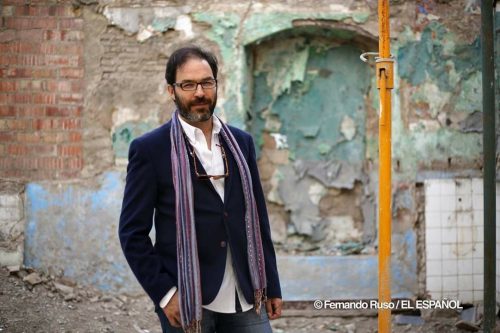
Miguel Ángel Vargas is an independent researcher and artist, Vargas combines flamenco, theater and romani history as experienced-based themes of his artistic and academic enquiry. He has worked internationally as an actor, director, set designer, production manager and even opera technician among other roles in performing arts. He has collaborated with several academic institutions like Central Saint Martins College of Arts of London, in their Performing Arts MA; has been a member of Research group Pendaripén, on History of the Romani People, of the University of Seville and collaborates with Critical Romani Studies Seminars of Central European University.
PANEL 6: Building safe and respectful social media environment

Tommaso Chiamparino, Coordinator on combating anti-Muslim hatred, European Commission. Tommaso Chiamparino is the European Commission’s coordinator on combating anti-Muslim hatred.In his role, Tommaso works to ensure a robust and holistic response across the Commission services: fighting anti-Muslim hatred requires efforts and funds in the area of teaching and education, in the area of integration and social inclusion policies, in the areas of employment and non-discrimination. In parallel, Tommaso has been leading the Commission’s work on the implementation of the 2016 Code of conduct on countering illegal hate speech online, in the context of the comprehensive efforts on tackling racism, xenophobia and all forms of intolerance. Tommaso holds a PhD of the University of Florence, and a B.A. from the University of Turin.

Bastiaan Winkel-Boer is a policy advisor on online content at the ministry of Justice and Security in The Netherlands. He was elected as vice chair of the Council of Europe Expert Committee that drafts a new Recommendation on combating hate speech, including online.
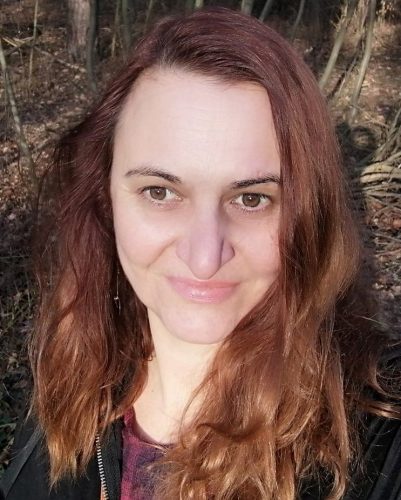
Selma Muhič Dizdarevič holds a PhD in public and social policy. She works at the Department of Civil Society Studies at the Charles University, Faculty of Humanities. Her main research interests include social exclusion, and questions of civil society in regards to minority rights, gender and hate speech. She cooperates actively with non-profit organizations both nationally and internationally. She was a visiting scholar at UC Berkeley, California, USA. She is currently board member International Network against Cyber Hate and works as senior researcher for ROMEA.

Gilda-Nancy Horvath is an artist, journalist, project manager, and communications consultant. She started her career in grassroots projects for the Romani community in Vienna, Austria. Soon after, she started working for the Austrian Public National Broadcaster ORF. She has also written numerous articles for the Romani cause and worked with many international projects connected to Romani activism, art, and politics. After 10 years in front of and behind the camera at ORF, she started educating and qualifying young Romani people in her project: “romblog.at,” where she is the Editor-In-Chief. She is also the co-founder of a record label for Romani music, fatherandbastards.com. Since 2013, she is a member of the Romani Dialogue Platform of the Federal Chancellery of Austria, consulting and discussing the implementation of #RomaStrategy2020.
Nancy Black is the artist alter ego of Gilda Horvath and produced her first song in December 2016, after being threatened by people who had spread false information about Roma in the media; they claimed that all Roma in Austria would give their support to the far-right candidate at the Presidential Elections in Austria on 04 December 2016. Horvath protested against this kind of manipulation and became a target of hate speech and defamation after that. Her rasping “Trushula” was a clear answer; this was the day Nancy Black was born. Nancy Black also produces video mixes, video installations, and digital/visual art and writing texts and poetry with a strong connection to the language Romanes and the situation of Romani people.
Closing of the conference
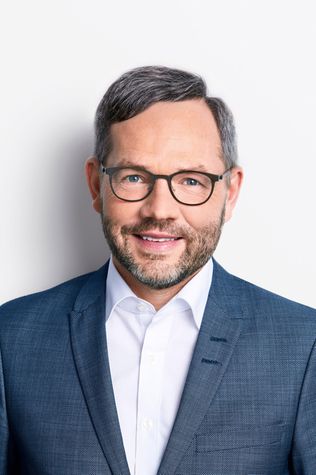
Michael Roth has been a directly elected member of the Bundestag since 1998. From 2010 to 2013 he was European policy spokesman for the SPD parliamentary group and from 2009 to February 2014 General Secretary of the SPD in Hesse. Michael Roth has been a member of the SPD federal executive committee since 2017. As Minister of State for Europe, Michael Roth is also the Federal Government Commissioner for Franco-German cooperation. He is also a member of the assembly of curators of the Institute for European Politics, member of the board of the Franco-German Institute Ludwigsburg, chairman of the supervisory board of the Center for International Peace Operations (ZIF), member of the council of the Foundation for Flight, Expulsion, Reconciliation (SFVV) and Special Representative of the Federal Government for the Chairmanship of Germany in the Committee of Ministers of the Council of Europe.

Hallvard Gorseth, Head of Anti-discrimination Department, Head of Department a.i. for the Roma and Travellers Team, Council of Europe

Tímea Junghaus is an art historian and contemporary art curator. She started in the position of Executive Director of the European Roma Institute for Arts and Culture in September 2017. Previously, Junghaus was Research Fellow of the Working Group for Critical Theories at the Institute for Art History at the Hungarian Academy of Sciences (2010-2017). She has researched and published extensively on the conjunctions of modern and contemporary art with critical theory, with particular reference to issues of cultural difference, colonialism, and minority representation. She is completing her Ph.D. studies in Cultural Theory at the Eötvös Lóránd University, Budapest.
In recognition of her curatorial activities, Junghaus received the Kairos – European Cultural Price from the Alfred Toepfer Stiftung F.V.S., in 2008. Her curatorial works include the Roma component of the Hidden Holocaust- exhibition in the Budapest Kunsthalle (2004), Paradise Lost – the First Roma Pavilion at the 52nd Venice Contemporary Art Biennale (2007), the Archive and Scholarly Conference on Roma Hiphop (2010), The Romani Elders and the Public Intervention for the Unfinished Memorial to the Sinti and Roma Murdered Under the National Socialist Regime in the frame of the 7th Berlin Biennale (2012), the (Re-)Conceptualizing Roma Resistance – exhibition and education program in Hellerau, Dresden (2015) and the Goethe Institute, Prague (2016). She is the curator of the Visual Arts Section for RomArchive – Digital Archive of the Roma, funded by Kulturstiftung des Bundes (2015-2018).
Junghaus was the founding director of Gallery8 – Roma Contemporary Art Space (www.gallery8.org) in Budapest (2013-2017), the winner of the 2014 Catalyst Contemporary Art Award (of Tranzit Hungary) and the 2014 Otto Pankok Prize awarded by the For Roma Foundation of German writer and Literary Nobel Laureate, Günter Grass.
Media coverage
Portal UDAR – Zero tolerance of Antigypsyism is the task of politics and our entire society – UDAR (portal-udar.net)
Romea.cz, March 19, 2021 – Romani Experts Discussed Hate Speech and Antigypsyism in the Media
